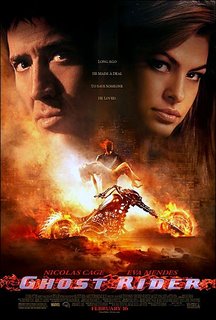
I hate it everytime Defensedefumer forces me to review comics. Afterall, ALL my book reviews are comics! So it was natural that I was particularly reluctant to read this one.
The story takes place halfway through Marvel's biggest event of the year so far: Civil War. If you are in the dark so far, basically the American government had required all metahumans to register with the state. Feeling that it oppresses human rights, Captain America leads a team to oppose the law. Ironman, on the other hand, is on the side of the government.
So the book begins with Ironman, aka Tony Stark, waiting patiently for Captain America, aka Steve Rogers, to appear. It is soon revealed that the two had been meeting frequently to resolve their problems diplomatically. To summarise, the comic is full of dialougue, with an unexpected sparring match in the end.
It may sound boring, but I would not be lying if I said this is the best comic I ever read so far! This comic clearly summarises the events of Civil War. For one, it states the main beliefs of both sides. Tony is focused on accountability, while Steve is more concerned about personal liberty. In the end, both sides are unable to persuade the other to change his stand.
A great deal of history is also brought up in the story, such as the Armour Wars, the death of Gwen Stacy and the Kree-Skrull War. Then it gets personal; Ironman accuses Steve of misusing his iconic image for his own interests and oversimplifying morality, while Captain America labels Tony as a government stooge and betraying Spiderman.
The story is aptly named "Rubicon", as the two sides leave, knowing that they will never see each other in the same light ever again.
In conclusion, this comic is a must-buy! Although the fight scene was a little irrelevant in the end, it is a generally good story with fantastic plot development.
Overall: 98/100
Nurlisa
